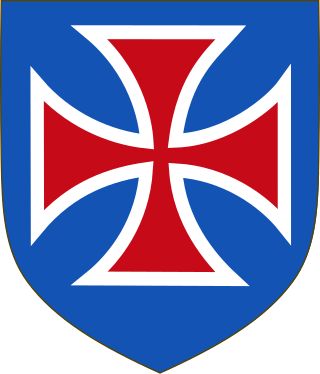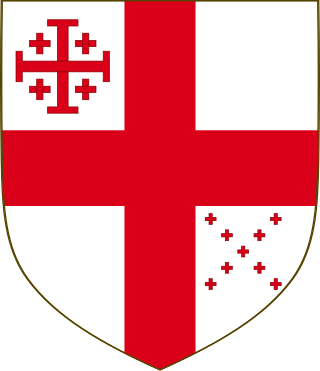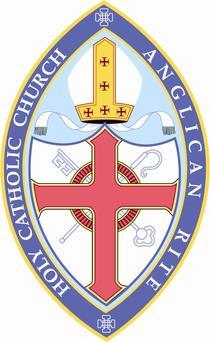Related Research Articles
A bishop is an ordained member of the clergy who is entrusted with a position of authority and oversight in a religious institution. In Christianity, bishops are normally responsible for the governance and administration of dioceses. The role or office of the bishop is called episcopacy. Organizationally, several Christian denominations utilize ecclesiastical structures that call for the position of bishops, while other denominations have dispensed with this office, seeing it as a symbol of power. Bishops have also exercised political authority within their dioceses.

The Anglican Province of Christ the King (APCK) is a Continuing Anglican church with traditional forms both of doctrine and liturgy. It is considered one of the more Anglo-Catholic jurisdictions among Continuing Anglican church bodies.

The Philippine Independent Church is an independent Christian denomination, in the form of a nationalist church, in the Philippines. Its schism from the Roman Catholic Church was proclaimed during the American colonial period in 1902, following the end of the Philippine–American War, by members of the Unión Obrera Democrática Filipina due to the mistreatment towards the Filipinos by Spanish priests, and partly influenced by the unjust executions of José Rizal and Filipino priests and prominent secularization movement figures Mariano Gomez, José Burgos, and Jacinto Zamora, during earlier Spanish colonial rule wherein Roman Catholicism was the state religion in the country at the time.
The Continuing Anglican movement, also known as the Anglican Continuum, encompasses a number of Christian churches, principally based in North America, that have an Anglican identity and tradition but are not part of the Anglican Communion.

The Anglican Church of Canada is the province of the Anglican Communion in Canada. The official French-language name is l'Église anglicane du Canada. In 2017, the Anglican Church counted 359,030 members on parish rolls in 2,206 congregations, organized into 1,571 parishes. The 2021 Canadian census counted 1,134,315 self-identified Anglicans, making the Anglican Church the third-largest Canadian church after the Catholic Church and the United Church of Canada. The 2021 Canadian census counted more than 1 million self-identified Anglicans, remaining the third-largest Canadian church.

The history of the Anglican Communion may be attributed mainly to the worldwide spread of British culture associated with the British Empire. Among other things the Church of England spread around the world and, gradually developing autonomy in each region of the world, became the communion as it exists today.
The Pastoral Provision is a set of practices and norms in the Catholic Church in the United States, by which bishops are authorized to provide spiritual care for Catholics converting from the Anglican tradition, by establishing parishes for them and ordaining priests from among them. The provision provides a way for individuals to become priests in territorial dioceses, even after Pope Benedict XVI's Anglicanorum Coetibus proclamation established the Personal Ordinariates, a non-diocesan mechanism for former Anglicans to join the Church.

The Anglican Catholic Church of Canada (ACCC) is a Continuing Anglican church that was founded in 1979 by traditional Anglicans who had separated from the Anglican Church of Canada. The ACCC has fifteen parishes and missions; with two bishops and 22 clergy.

The Reformed Episcopal Church (REC) is an Anglican church of evangelical Episcopalian heritage. It was founded in 1873 in New York City by George David Cummins, a former bishop of the Protestant Episcopal Church.

The Anglican Catholic Church (ACC), also known as the Anglican Catholic Church (Original Province), is a body of Christians in the continuing Anglican movement, which is separate from the Anglican Communion. This denomination is separate from the Anglican Catholic Church in Australia and the Anglican Catholic Church of Canada.
The Charismatic Episcopal Church (CEC), officially the International Communion of the Charismatic Episcopal Church (ICCEC), is a Christian denomination established in 1992. The ICCEC is a part of the Convergence Movement. Within North America, most of the Charismatic Episcopal Church's congregations and missions are located within the Northern, Southeastern, Midwest, and Western United States; it also has a presence in Texas, and in Western Canada.

The Church of the Province of South East Asia is an autonomous member of the Anglican Communion, created in 1996 with the four dioceses of Kuching, Sabah, Singapore and West Malaysia.

The Episcopal Missionary Church (EMC) is a Continuing Anglican church body in the United States and a member of the Federation of Anglican Churches in the Americas.

In the Catholic Church, a bishop is an ordained minister who holds the fullness of the sacrament of holy orders and is responsible for teaching doctrine, governing Catholics in his jurisdiction, sanctifying the world and representing the Church. Catholics trace the origins of the office of bishop to the apostles, who it is believed were endowed with a special charism and office by the Holy Spirit at Pentecost. Catholics believe this special charism and office has been transmitted through an unbroken succession of bishops by the laying on of hands in the sacrament of holy orders.

The United Episcopal Church of North America (UECNA) is a church in the Anglican tradition and is part of the Continuing Anglican movement. It is not part of the Anglican Communion.
Charles Dale David Doren was the first bishop consecrated to serve the Continuing Anglican movement, which began in 1977 in reaction to decisions taken in 1976 at the General Convention of the Episcopal Church in the United States of America. He was born on 18 November 1915 in Marvin, South Dakota, the son of Ernest Ray and Mae E. Doren. Doren was prepared for Holy Orders at Seabury-Western Theological Seminary and was ordained a priest in November 1944 by Bishop Roberts of the Protestant Episcopal Church. On 16 June 1946 he married Bonney Dixon Ward in Beadle, South Dakota. Doren served as a series of parishes in the USA, including a period as a Canon of St Mark's Cathedral, Minneapolis. He was later a missionary in Korea holding the office of Archdeacon for some years before returning to the United States and settling in Paoli, Pennsylvania.

The Christian Episcopal Church (XnEC) is a Continuing Anglican jurisdiction consisting of parishes in Canada and the United States and with oversight of several parishes in the Cayman Islands. Its bishops claim apostolic succession through the Right Rev. A. Donald Davies. Davies was formerly the bishop-in-charge of the Convocation of American Churches in Europe and the bishop of the Episcopal Diocese of Fort Worth, Texas.

The Holy Catholic Church (Anglican Rite) (also known as the Anglican Rite Catholic Church or HCC-AR) is a body of Christians in the Continuing Anglican movement. It is represented by dioceses and missionary jurisdictions in the United States of America, Latin America, and India.
A personal ordinariate for former Anglicans, shortened as personal ordinariate or Anglican ordinariate, is an ordinariate, a canonical structure within the Catholic Church established in order to enable "groups of Anglicans" and Methodists to join the Catholic Church while preserving elements of their liturgical and spiritual patrimony.
The Diocese of the United Kingdom is a diocese of the Anglican Catholic Church (ACC), encompassing the entire area of the United Kingdom. It is one of the dioceses of the Original Province of the Anglican Catholic Church, and is not a part of the Anglican Communion. It is separate from the Free Church of England, the Anglican Ordinariate, the Society of St Wilfred and St Hilda, and the Church of England (Continuing). The Diocese was formed, like the rest of the ACC, in response to the alteration to the sacraments by the Church of England.
References
- ↑ Anglican History website, Badertscher; The Measure of a Bishop, Chapter 2, page 14
- ↑ The Oklahoman website, Southern Baptist, Episcopal Schisms Differ, Pastor Says’’, article by Pat Gilliland
- ↑ Episcopal Archives website, New Denomination Consecrates Former Episcopal Priests as Bishops, article dated April 1, 1993
- ↑ Encyclopedia website, Anglican Churches: American Anglican Church